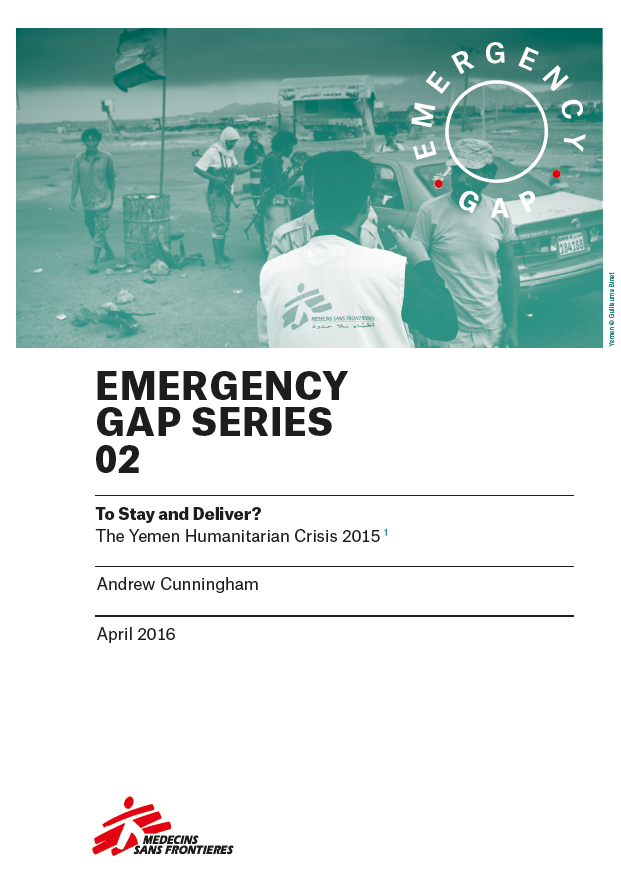‘Stay and Deliver’ Yemen Report
Emergency gap series 02
Humanitarian aid actors, including the UN, INGOs, and donors, have failed in their responsibilities in the Yemen response. There have been many obstacles to aid provision during the Yemen crisis, but the perception of security risks, the approach taken to respond to them, and the capacity to meet these dangers, have all been particularly important barriers to a successful humanitarian response in Yemen. Staying and delivering assistance is preferable to leaving a conflict zone and failing to live up to one’s responsibility as a humanitarian actor. As such the humanitarian system must work together to create an enabling environment for the provision of humanitarian assistance. This article examines the negative case of Yemen in 2015 where a disabling environment was created rather than an enabling one.
The article reflects on a number of important security-related obstacles in the Yemen response. First, the locus of security decision-making was misplaced—rather than being in the hands of operational managers, it remained with security personnel. Security management was also centralised whereas it should be the concern of those closest to the field realities. Second, INGOs were too dependent on UN security, logistical, and networking capacity and had insufficient capacity to manage many aspects of their own security and negotiations. And third, independent deconfliction activities or even direct networking with Saudi officials was not conducted by most INGOs. In general, few humanitarian agencies put sufficient attention into proper context analysis and networking. The structural underpinnings of these obstacles are analysed.


 Emergency Gap Series_2_Stay and Deliver_Yemen Crisis 2015_April 2016_0
Emergency Gap Series_2_Stay and Deliver_Yemen Crisis 2015_April 2016_0